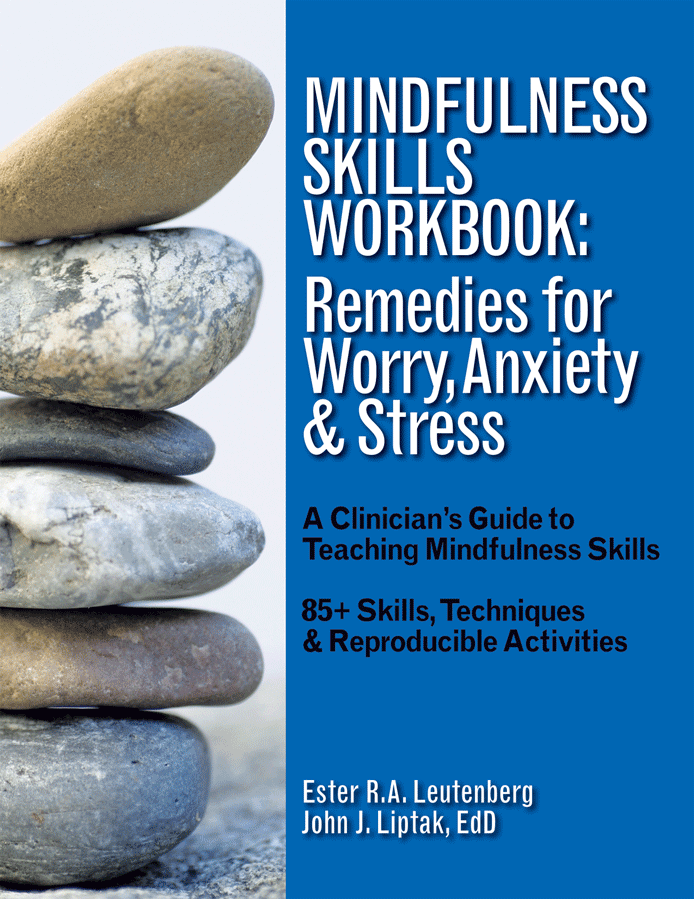Mindfulness is about developing the basic human ability to be fully present, aware of where you are and what you are doing, and not overly reactive or overwhelmed by daily hassles. Mindfulness is a tremendous technique, one that is powerful for snapping you back to where you are in the present and what you are doing and feeling. While all people possess the ability to develop mindfulness, it is rarely activated and utilized when daily hassles build up and begin to cause stress and frustration.
Mindfulness has been described as a state of mind in which people can observe mental activity without attaching to it or evaluating it. Mindfulness is about becoming aware of your natural tendency to sleepwalk through life. When on autopilot, you navigate through the day totally unaware of what you are doing. This happens when a driver arrives at work and does not even remember traveling there, or the person who is so busy thinking about the future that the beauty of the present is overlooked.
Through mindfulness, people can recognize when they are operating on autopilot and step into the present moment free from worry, anxiety, and stress. It is paying attention on purpose, being present in your surroundings and with people, and enjoying and appreciating life more. Mindfulness is about paying attention to what is going on with the body, mind, and environment which leads to an understanding of how you are getting stuck in autopilot. By developing mindfulness, people can build a fresh perspective and start to become more aware of personal habits that cause stress, fear, dissatisfaction, frustration, and anger. With this awareness comes the ability to stop reacting to daily hassles and start to begin to make more effective life choices.
Although mindfulness is not automatic and does not occur spontaneously, it can be learned and practiced so that it can be accessed intentionally when needed. Some of the characteristics of mindfulness include non-judgmental awareness, paying attention on purpose, remaining non-judgmental, staying in the present, being non-reactive, and remaining openhearted and compassionate.
- Increased acceptance—By not making evaluations, participants can accept the internal thoughts in their mind and see these messages as simple mental processes rather than pure truths.
- Greater awareness—Participants will be able to experience expanded awareness and a clearer vision of the world and its processes.
- Less intense reactions—Participants will be less inclined to react when experiencing the stress of daily hassles. Instead, they will develop an observer stance through which they are free from evaluation, attachment, and frustration.
- Relaxed approach—Participants will learn to relax to be better able to cope with worry, anxiety, and stress related to daily hassles in life.
- Calm demeanor—Participants develop a state of mind in which they are mentally and physically at peace. They will be prepared to deal more effectively with the daily worry, anxiety, and stress caused by everyday hassles. They will experience greater overall well-being.
- Mental functioning—Participants will experience greater concentration, focus, and self-awareness that will promote greater personal and professional growth and development.
What are Your Daily Hassles?
Negative big-life events such as losing a job, death of a loved one, and moving to another location can be extremely stressful and can cloud every moment of the day. On the other hand, it is the daily annoying or troublesome concerns that cause enough worry, anxiety, and/or stress to wear people down over time.
Select your daily hassles from the list below. Journal about why they are hassles for you.
| Big life events Crime Disagreements Family Finances Future concerns Gossip Health Getting ahead Home maintenance Interruptions Job Loneliness Losing things Neighbors Noise Past events | Politics Pollution Responsibilities Sleep issues Social obligations Thoughtlessness Time To-do list Traffic Unkindness Vehicle Volunteer job Waiting Weight World affairs Other |
Click here for printable worksheet: What Are Your Daily Hassles?
Are you operating on autopilot?
Living on autopilot means to do something without focusing on it or thinking about what is actually happening. Many people live their lives doing the same things over and over regardless of the results they receive. When this occurs, people lack awareness of what is occurring in their lives, and they operate from habit.
Respond to the questions below by journaling about your day yesterday to see how mindful you are.
What time did you wake up in the morning?
What did you eat for breakfast?
What did you eat for lunch?
What did you eat for dinner?
What snacks did you have throughout the day?
Who did you see throughout the day and what did you talk about?
What was your most pleasant moment of the day and how did you feel?
What was your most stressful moment and how did you feel?
Who was kind to you? Explain.
To whom were you kind? Explain.
How did your day end?
What time did you go to sleep?
The more you remember about your day, the more mindful you tend to be. On a separate sheet of paper, or in your journal pick one or two items and expand your reflections in detail.
Click here for printable worksheet: How Mindful Are You?
*Excerpted from Mindfulness Skills Workbook: Remedies for Worry, Anxiety & Stress

